
5 Books You May Have
Missed in June
From Mauritian Family Sagas to the Norwegian Arctic
You ask: “What should I read next?” I answer: Scroll back through a few of these columns. I promise that even if you aren’t interested in all five books at once, there will be one title that grabs you. Or else you’re in the wrong place, which is entirely possible. Each month I sort through hundreds of titles and eventually narrow my choices down to somewhere between twenty and forty, and if I don’t look at them all, I miss things, such as one of my favorites this month, in which a budding artist discovers her true strength through an encounter with a wild beast. However, if you think whittling, say, thirty titles down to five isn’t agonizing, you’ve never had to. Maybe you live in a house with endless bookshelves. In which case, can I come over?
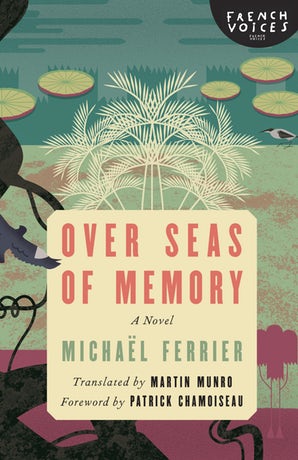
Michaël Ferrier, Over Seas of Memory
(University of Nebraska Press)
I read and seriously loved—if that’s the right word for a book so merciless and true—Patrick Chamoiseau’s Slave Old Man, so when I saw that the Martinique-born Chamoiseau had penned a foreword to Ferrier’s Over Seas of Memory, I decided to take a look. Translated by Martin Munro of Florida State, the prose retains its French sinuousity. Ferrier wants to tell. . . memory. Family memory. That sounds so simple, but anyone who has tried to do it knows it isn’t. He follows in his grandfather Maxime’s footsteps, from the man’s birth on the island of Mauritius, to the day he boarded a boat for Madagascar in 1922—and never returned. His life in his new country was fascinating, adventurous, and romantic, including a job as an acrobat, a marriage to a glamor girl from an Indian family, and much more. However, Ferrier keeps his family narrative tightly tethered to modern Francophone culture in all its contradictions, especially those concerning identity. As Chamoiseau writes in that foreword, since the world has become opened up to its own diversity, “Our cultures, civilizations, and imaginaries flow in interactive, unstoppable, unpredictable ways.”
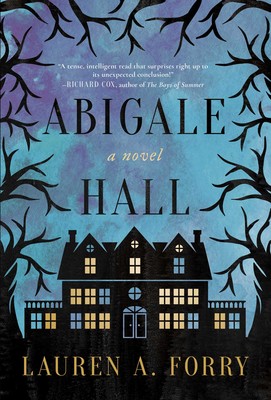
Lauren Forry, Abigale Hall
(Skyhorse)
Everyone needs a summer potboiler, and I’ve made mine Forry’s dark, atmospheric Abigale Hall. A pair of siblings, orphaned by World War II, begin work at the titular manor house. There’s a mysterious master, a glowering housekeeper, and many other Gothic-novel tropes to keep fans of the genre turning pages. However, Forry (who was born and lives in the United States, but lived and received her master’s degree in England) wisely contrasts the rubble and stench of wartime London with the decay and fecundity of the Welsh countryside. The cold, dead mice, hard work, and dreadful food (Spam salad!) will pale beside a blood-drenched household mystery. However, the deepest mystery, as always, has to do with the secrets of the human mind.
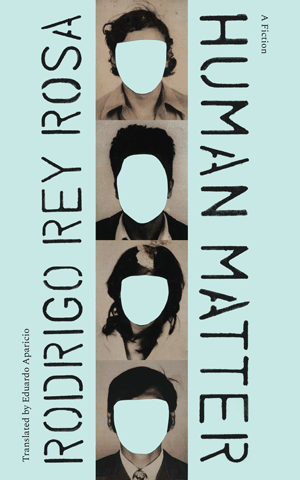
Rodrigo Rey Rosa, Human Matter: A Fiction
(University of Texas Press, trans. Eduardo Aparicio)
Human Matter reminds me, as if I needed reminding, that we don’t read enough fiction in translation in the United States. Rey Rosa’s meta-novel was published in 2009, but it’s taken all this time for a new translation (by Eduardo Aparicio) to appear. The novelist began his Archive Recovery Project in order to shine a light on the hidden records of the Guatemala National Police. The novelist-narrator, named “Rodrigo,” weaves together stories of the many kinds of people who were deemed “terrorists” by the state. The result might not be as much fun to read at the beach as a murder mystery, but it’s required reading for anyone who is interested in how we remember and record the events that so many of us call “history.” Rey Rosa is never sure if the materials he’s shown are complete, are accurate, are free of tampering, giving rise to a record in which absences speak more loudly than words.
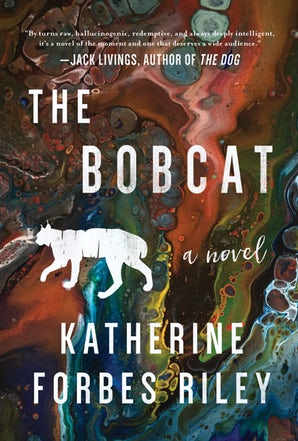
Katherine Forbes Riley, The Bobcat
(Arcade)
Many novels feature wild animals as central metaphors, but not many novels achieve the congruity of The Bobcat. Lots of writers have chimed in to sing the praises of this book, but I haven’t seen as many readers engaged with it, and perhaps I can help change that a little. Laurelie, a survivor of sexual violence, is unhappily enrolled as an art student at a small college in Vermont. She’s happiest when babysitting, until the day she and her little charge encounter an injured, pregnant, bobcat in the woods. A hiker has been following it for miles in an attempt to make sure it survives. Yes, the child is the smoking gun; while missing, it forces humans and wild beast to make some reckonings. While the novel does deal with what it means to suffer from PTSD, its tendency towards recovery, towards the natural world’s processes, makes it different from other fiction about survivors. It’s a slight volume, but a rich read.
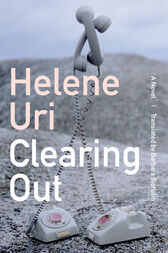
Helene Uri, Clearing Out
(University of Minnesota Press, trans. by Barbara Sjoholm)
Clearing Out is, like Ferrier’s book, about family and memory. But here, it’s told via fiction and autobiography, in which a Norwegian novelist—Uri—sends a character north to learn about her Sami ancestry. It won the American-Scandinavian Foundation Nadia Christensen Prize for Translation. Two stories connect, one of a contemporary novelist named Helene, the second of her new protagonist, Ellinor. When Helene learns that her grandfather was a Sami fisherman, she copes with the new information by writing it into her character’s story. As Ellinor travels to “Finnmark” and studies the region’s dying languages, she also discovers a culture that entrances her. Her relationships with two quite different men deepen her ties in the far north, and make Helene think hard about how families are made, are broken, and are re-formed into new communities.
Bethanne Patrick
Bethanne Patrick is a literary journalist and Literary Hub contributing editor.



















